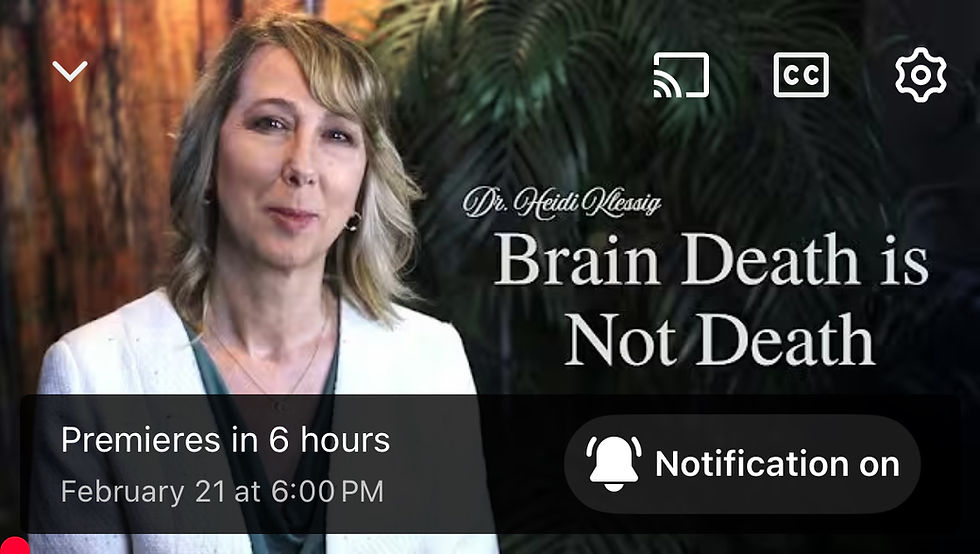Cruel and Unusual Punishment
- Respect for Human Life

- Feb 7, 2024
- 2 min read
Investigative reporter Kevin Stone of Health Care News just published a revealing article about the Alabama prisoners whose bodies were returned to their families without their organs.

In short, these men died while serving their sentences with the Alabama Department of Corrections. The prison wardens would then authorize an autopsy, using a consent form stating that unless specifically requested, organs are not returned to the body. It appears that the prison system would then sell the organs to the University of Alabama at Birmingham School of Medicine (UABSOM) for student lab study. A few years ago, the medical students noticed that their specimens were overwhelmingly coming from prisoners: in fact, they estimated that their specimens were 50 times more likely to come from a prisoner! Thus, the medical students lodged an ethics complaint, which UABSOM dismissed without taking action. You can read the entire story here. Hopefully, publicity about this abusive system (accompanied by legal action) will lead to change.
Organ trafficking can be big business. In 2017, Reuters published a series of articles, The Body Trade: Cashing in on the Donated Dead, reporting that more than 2,357 body parts obtained by US body brokers from at least 1,638 people ended up misused, abused, or desecrated. One great-grandmother’s body was used by the US Army to measure the damage caused by roadside bombs.
In June of 2023, six people were charged with stealing and selling body parts from Harvard Medical School and an Arkansas morgue. Cedric Lodge, the manager of Harvard’s morgue, was charged with selling brains, hearts, skin, and other body parts to members of several Facebook groups that were platforms for buying and selling “oddities”. In addition, Lodge allowed two oddities traffickers to enter the school’s morgue to shop for body parts. The indictment noted that the traffickers requested human skin to be turned into leather. And the ongoing investigation is continuing to track down additional missing body parts, with 40 human skulls being found in a Kentucky man’s apartment. In light of all this, people should be cautious about donating their bodies to science.
The Alabama prisoners’ case also highlights the problems with an “opt-out” system, one that takes organs unless the individual or family specifically refuses. Such a system has great potential for abuse, and not just for Alabama prisoners. In the United States, the Uniform Anatomical Gift Act (UAGA) empowers the coroner, medical examiner, or even the hospital administrator to “make an anatomical gift of the decedent’s body or part” if the person has no documented refusal to donate and their family or surrogate cannot be located within 12 hours. The UAGA is another “opt-out” system that affects us all, even though most people are unaware of this.
Because of the many documented cases of abuse in the organ and tissue donation system (taking organs from prisoners, selling body parts to “oddities” traffickers, people waking up just prior to organ harvesting, or even during the organ harvest), we recommend that everyone protect themselves by documenting their refusal to be an organ or tissue donor. You can do this by adding a refusal to donate to your advanced directive and your electronic medical record, and by carrying a wallet card stating your refusal.



Comments